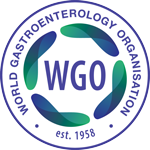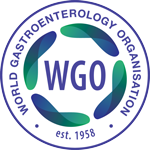The Burden of Waste Generated by Endoscopy Units
Review by Prof. Eamonn Quigley (USA)
Study Summary
In this study the authors prospectively collected data on total waste generation, energy consumption and the use of an intraprocedural audit at a single busy tertiary referral endoscopy unit (a Veterans Affairs Hospital in Kansas City, USA) over a 2-month period. During these two months 450 endoscopic procedures (upper endoscopy and colonoscopy) were performed and generated just under 1400kg of waste (62% going directly to landfill, 33% biohazard waste and 5% sharps) – equivalent to filling 2 football fields to a height of one foot with waste. In addition, endoscope reprocessing generated 194 gallons of liquid waste daily and the endoscopy unit consumed 1980 kWh for every 100 procedures performed. It was estimated that approximately 20% of all of this waste could be recycled.
Commentary
Endoscopy is a core service provided by gastroenterology departments around the world. Over the years standards for patient and staff protection from infection have focused more and more attention on sterilization, use of disposable rather than re-usable accessories and protective clothing. The latter was greatly accelerated by the COVID-19 pandemic where masks and disposable gowns and headwear became mandatory, and these practices have persisted in many units. A worrying consequence of all of this is the generation of large amounts of medical waste – a concern that the World Gastroenterology Organisation had been very concerned about and has joined forces with other GI societies in efforts to highlight this issue and propose solution (https://gut.bmj.com/pages/digestive-health-and-climate-change and https://www.worldgastroenterology.org/education-and-training/webinars/wgo-climate-course-for-global-gastroenterology). This study now puts real numbers on how much waste an endoscopy unit generates and vividly illustrates the challenges that we are confronted with. Every unit needs to look carefully at how they can address every aspect of waste generation and how it can be reduced without impacting on patient and staff safety and the quality of the endoscopic procedure.
Citation
Desai M, Campbell C, Perisetti A, Srinivasan S, Radadiya D, Patel H, Melquist S, Rex DK, Sharma P. The environmental impact of gastrointestinal procedures: a prospective study of waste generation, energy consumption, and auditing in an endoscopy unit. Wang Y, et al. Gastroenterology 2024;166:496-502.
View past News You Can Use commentaries

